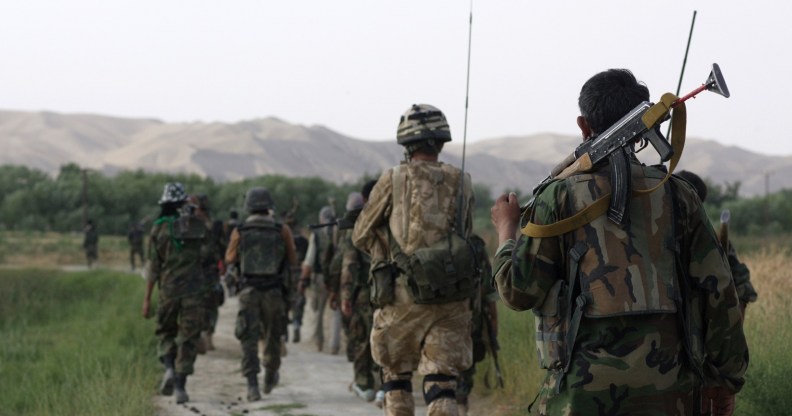British military set to lift ban on women in combat roles

The UK military is set to lift a long-held ban on women in combat roles.
Prime Minister David Cameron is expected to announce an end to the long-standing policy that has blocked women from serving in open combat roles in infantry and armour units.
Under current rules, women are “excluded from ground combat units where the primary role is to close with and kill the enemy”.
The possibility of removing the policy has been discussed for many years, with a review of the issue beginning in 2009. The review found no evidence that women would undermine morale or harm unit cohesion.
According to the Telegraph, military chiefs have now unanimously endorsed the move – which will bring the UK into line with many other Western forces.
Mr Cameron is expected to announce the change this weekend at a NATO summit – with a phased introduction meaning women could serve in tank unit roles within a year.
Speaking to PinkNews last year, Chief of Defence Personnel Lieutenant General Andrew Gregory said he had no doubt some women would meet the standards.
He said: “Some women will be able to pass the entrance test for the infantry, I’ve no doubt about that.
“Perhaps not many will want to, but some will. But we do not know what the long-term physiological effects on their bodies of constantly carrying brutally heavy loads, 70-80 kilos, over long periods.
“That is the research going on, because we have a duty of care.”
Of the possibility of trans people serving on the front line, he said: “We do not yet have any female transgender people serving in the infantry. We haven’t had to address it because we haven’t had the issue come up.
“It would be a very interesting test case if it did come up. If somebody – birth gender male who physically has all the physical strength and durability but had transitioned, they might well be able.”
Speaking about recruitment in general, he added: “We’ve absolutely got to tap all sections of society otherwise we simply won’t be able to get the people we need.
“We will be missing out on huge rafts of talents from Asian communities, LGBT people – all of you have much to offer defence.
“We would continue to be legitimate because our power to operate comes from Her Majesty, but we will not be seen by parts of society as being their armed forces and I think that’s a risk.”
“A critical area of weakness, where we are seriously under-represented are in females.
“Assuming 51% of the population and 51% of your readership are female, 10% of armed forces are female. While we may never get to 50/50 we are unrepresentative, and we are more unrepresentative as one goes further up the pyramid.”

